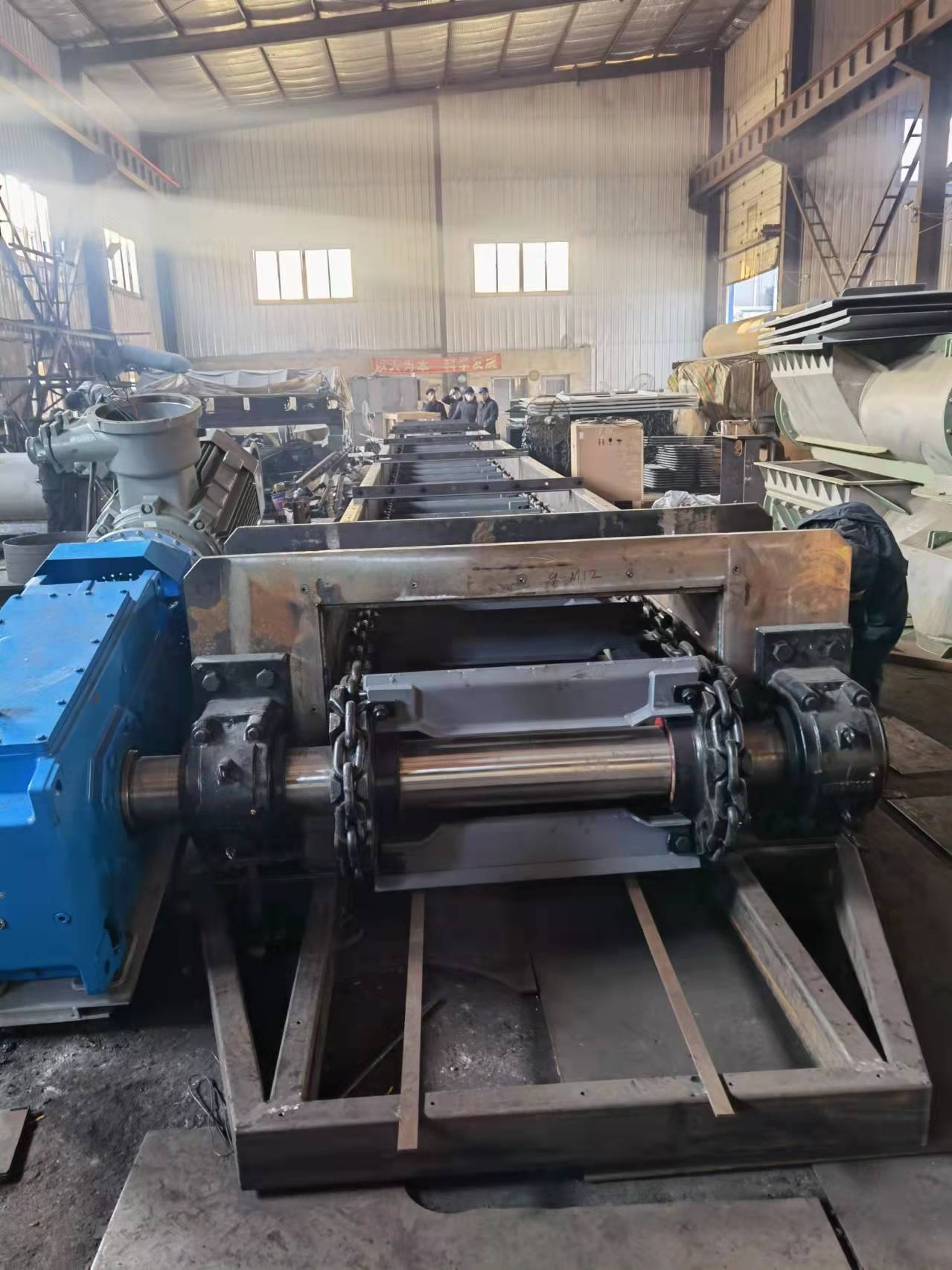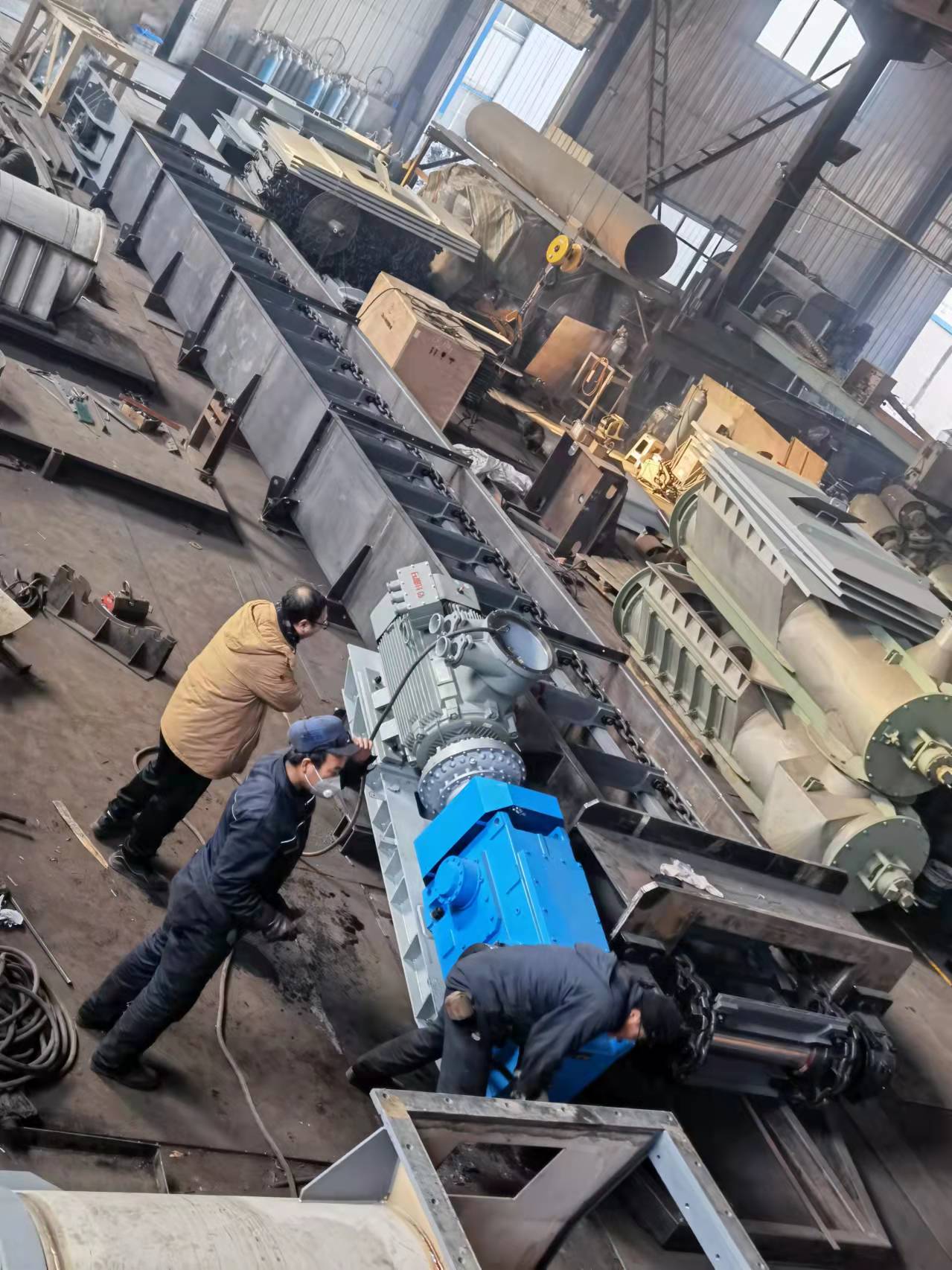Revolutionizing Material Handling: JULI 's Buried Scraper Conveyor
Revolutionizing Material Handling: JULI 's Buried Scraper Conveyor
In the fast-paced world of material handling and mining, it is essential to have robust and reliable conveyor systems that can handle heavy loads and operate efficiently in challenging environments. One innovative solution that has been revolutionizing the industry is the buried scraper conveyor, and China has been leading the way in developing this technology.

The buried scraper conveyor is a type of bulk material handling equipment that is used for transporting materials such as coal, cement, and ash in power plants, cement plants, and mining operations. Unlike traditional conveyor systems, the buried scraper conveyor is designed to operate underground, making it a perfect choice for applications where space is limited or when the conveyor needs to be installed at a depth below the ground.
JULI has been at the forefront of developing and manufacturing high-quality buried scraper conveyors, with several companies offering advanced solutions that are tailored to the specific requirements of different industries. These conveyors are known for their durability, efficiency, and low maintenance, making them a cost-effective choice for businesses that are looking to upgrade their material handling infrastructure.
One of the main advantages of the buried scraper conveyor is its ability to handle a wide range of materials, including abrasive and corrosive substances, without the risk of spillage or environmental contamination. This is achieved through the use of heavy-duty chains and scrapers that are designed to withstand the harsh conditions of underground operations, ensuring reliable performance and long service life.
In addition to their robust construction, China's buried scraper conveyors are also equipped with advanced control and monitoring systems, which allow operators to optimize the conveyor's operation, track the flow of materials, and diagnose any potential issues in real-time. This level of automation and connectivity not only improves the efficiency of material handling processes but also reduces the risk of downtime and costly repairs.
Another key feature of China's buried scraper conveyors is their flexibility and adaptability to different layouts and operating conditions. Whether it's a straight-line installation or a complex network of conveyors with multiple discharge points, these systems can be custom-designed to meet the specific needs of a facility, maximizing the use of available space and streamlining the flow of materials.
From a maintenance perspective, China's buried scraper conveyors are designed with ease of access in mind, making it simple for operators to perform routine inspections and servicing tasks. This reduces the need for prolonged downtime and minimizes the risk of unexpected breakdowns, ensuring a consistent and uninterrupted flow of materials.
As the demand for efficient and sustainable material handling solutions continues to grow, the buried scraper conveyor has emerged as a game-changer in the industry, offering a reliable and cost-effective alternative to traditional conveyor systems. With China's expertise in manufacturing high-quality and innovative conveyor technology, businesses around the world can benefit from cutting-edge solutions that are designed to enhance productivity and reduce operational costs.

In conclusion, JULI 's buried scraper conveyor represents a significant advancement in material handling technology, offering unparalleled durability, efficiency, and adaptability for a wide range of industrial applications. With its robust construction, advanced control systems, and flexibility, this innovative conveyor system is poised to reshape the way materials are transported and processed, setting new standards for reliability and performance in the industry. Businesses that are looking to invest in modernizing their material handling infrastructure should consider the advantages of JULI 's buried scraper conveyor, a solution that is built to meet the challenges of today's evolving industrial landscape.
 O'zbek
O'zbek slovenský
slovenský Azərbaycan
Azərbaycan Қазақ
Қазақ Latine
Latine ລາວ
ລາວ български
български नेपाली
नेपाली فارسی
فارسی Javanese
Javanese Українська
Українська Lietuvos
Lietuvos Română
Română Slovenski
Slovenski پښتو
پښتو Punjabi
Punjabi Bosanski
Bosanski Malti
Malti Galego
Galego Afrikaans
Afrikaans Esperanto
Esperanto 简体中文
简体中文 Српски
Српски मराठी
मराठी Ελληνικά
Ελληνικά čeština
čeština Polski
Polski ไทย
ไทย Nederlands
Nederlands Italiano
Italiano Tiếng Việt
Tiếng Việt Deutsch
Deutsch français
français русский
русский Português
Português Español
Español 한국어
한국어 Svenska
Svenska Malay
Malay اردو
اردو norsk
norsk Indonesia
Indonesia عربى
عربى Gaeilge
Gaeilge Türk
Türk Pilipino
Pilipino हिन्दी
हिन्दी Dansk
Dansk বাংলা
বাংলা English
English


What Causes Excessive Wear on Conveyor Belt Edges and How to Prevent It
Excessive conveyor belt edge wear—caused by misalignment, uneven loading, worn rollers, or debris—can be minimized through proper alignment, even material distribution, regular maintenance, and protective measures like skirting and edge guards.
Read MoreHow to Stop Belt Conveyor from Tracking Off-Center (Running Sideways)
Belt conveyors are essential components in industries ranging from mining and manufacturing to logistics and warehousing. However, one of the most common operational issues faced by facility managers and engineers is belt misalignment, often referred to as tracking off-center or running sideways. This problem not only reduces efficiency but can also cause excessive wear, damage to components, and potential safety hazards. Understanding the causes and solutions is key to maintaining smooth conveyor operations.
Read MoreRotary Scraper for Belt Conveyor Sees Growing Use in Industrial Bulk Handling
As industries worldwide continue to automate material-handling processes, the Rotary Scraper for Belt Conveyor has become an increasingly common component in production facilities. Designed to remove residual material from conveyor belts, rotary scrapers are enhancing operational efficiency, reducing downtime, and improving product quality across multiple industrial sectors.
Read More